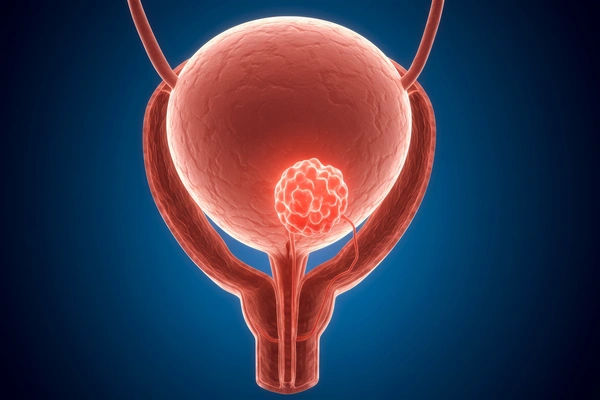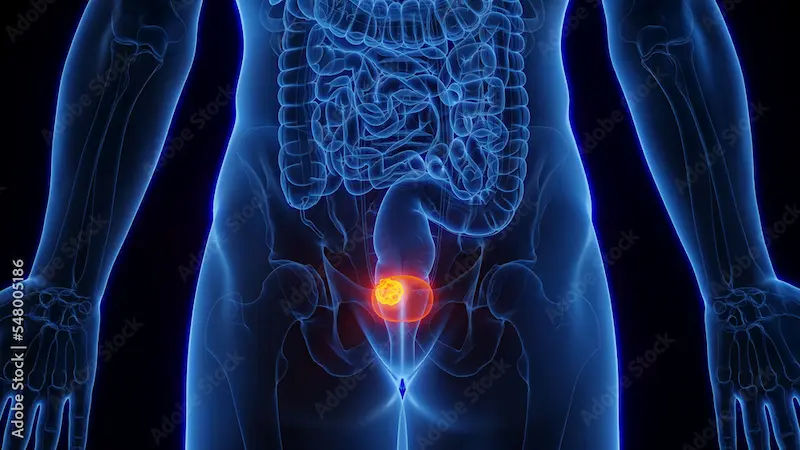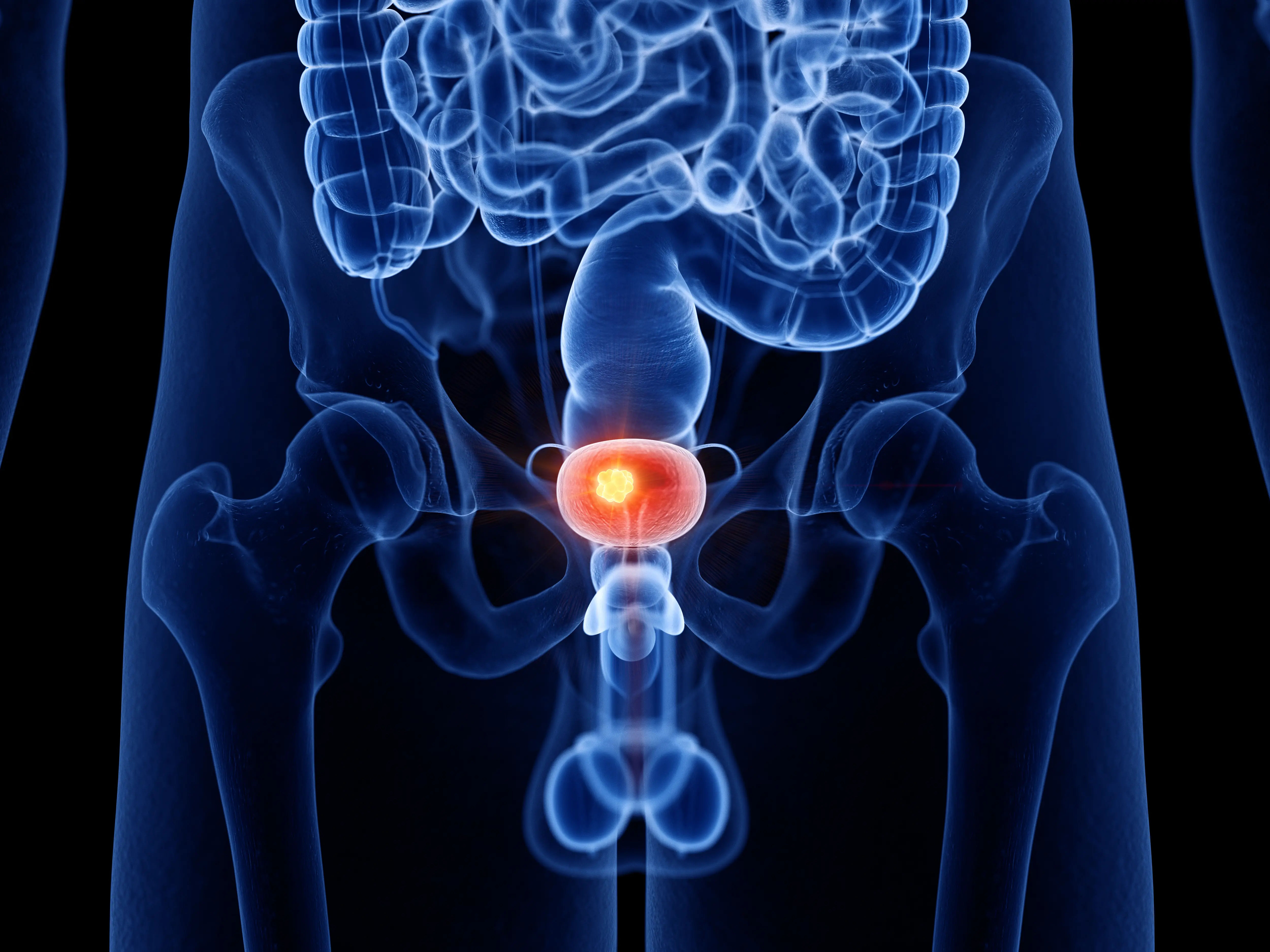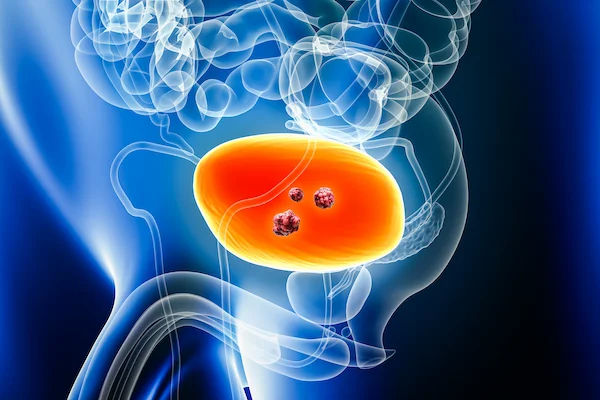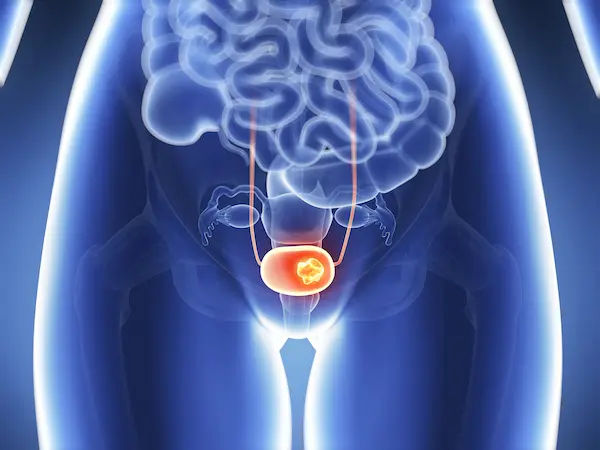Bladder Cancer Overview and Prevention Strategies
Know about bladder cancer, what it is, types, symptoms, causes and risk. Learn about the prevention and diagnosis, and more.

Written by Dr. Dhankecha Mayank Dineshbhai
Reviewed by Dr. D Bhanu Prakash MBBS, AFIH, Advanced certificate in critical care medicine, Fellowship in critical care medicine
Last updated on 13th Jan, 2026

Introduction
Bladder cancer is a serious but manageable condition that affects thousands of people every year. If you or a loved one has been diagnosed or is at risk, understanding the disease, its symptoms, causes, and prevention strategies can help in early detection and better management. This article provides a simple, compassionate guide to bladder cancer, along with practical tips to reduce your risk.
What is Bladder Cancer?
Bladder cancer occurs when abnormal cells grow uncontrollably in the bladder—the organ that stores urine. These cells can form tumours and, if left untreated, may spread to other parts of the body. While it can be life-threatening if detected late, early-stage bladder cancer is often treatable.
Types of Bladder Cancer
1. Urothelial Carcinoma (Transitional Cell Carcinoma) – The most common type (about 90% of cases), affecting the inner lining of the bladder.
2. Squamous Cell Carcinoma – A rarer form linked to long-term irritation or infections.
3. Adenocarcinoma – A very rare type that develops in the glandular cells of the bladder.
Symptoms of Bladder Cancer
Early detection is crucial, so watch out for these common signs:
- Blood in urine (hematuria) – The most common symptom, making urine appear pink, red, or brown.
- Frequent urination – Feeling the need to urinate often, even when the bladder isn’t full.
- Painful urination – A burning sensation while passing urine.
- Pelvic or back pain – Discomfort in the lower abdomen or back.
- Urgency to urinate – Sudden, strong urges to pass urine.
If you experience any of these symptoms persistently, consult a doctor immediately.
Causes and Risk Factors
While the exact cause of bladder cancer is unclear, certain factors increase the risk:
1. Smoking
- The biggest risk factor—smokers are three times more likely to develop bladder cancer.
- Harmful chemicals in tobacco enter the bloodstream and get filtered into the urine, damaging the bladder lining.
2. Chemical Exposure
People working with dyes, rubber, textiles, or chemicals (like arsenic, benzene, and certain industrial solvents) have a higher risk.
3. Chronic Bladder Irritation
Long-term urinary infections, bladder stones, or frequent catheter use may increase risk.
4. Age and Gender
More common in people over 55 and men (who are 3-4 times more likely to develop it than women).
5. Family History & Genetics
A family history of bladder cancer or genetic mutations (like Lynch syndrome) can increase susceptibility.
How is Bladder Cancer Diagnosed?
If symptoms suggest bladder cancer, doctors may recommend:
- Urine Tests – To check for blood, abnormal cells, or tumour markers.
- Cystoscopy – A thin tube with a camera is inserted into the bladder to detect tumours.
- Imaging Tests – CT scans, MRIs, or ultrasounds to check for tumour spread.
- Biopsy – Removing a small tissue sample for lab testing.
- Early diagnosis improves treatment success, so don’t ignore symptoms.
Consult an Oncologist for Personalised Advice
Prevention Strategies
While not all cases are preventable, these steps can significantly reduce risk:
1. Quit Smoking
If you smoke, quitting is the best way to lower your risk. Seek support from cessation programs if needed.
2. Stay Hydrated
Drinking plenty of water dilutes harmful chemicals in urine and flushes them out faster.
3. Eat a Healthy Diet
- Fruits & Vegetables – Rich in antioxidants (berries, leafy greens, citrus fruits).
- Limit Processed Foods – Reduce intake of smoked, fried, or charred meats.
4. Avoid Harmful Chemicals
If you work with industrial chemicals, follow safety guidelines (wearing protective gear, proper ventilation).
5. Treat Urinary Infections Promptly
Chronic infections can irritate the bladder—seek treatment early.
6. Regular Check-ups
If you have a family history or a high-risk occupation, discuss screening with your doctor.
When to See a Doctor?
If you notice:
- Blood in urine (even once)
- Persistent urinary discomfort
- Unexplained weight loss or fatigue
- Don’t delay, early action can save lives.
Final Thoughts
Bladder cancer can be daunting, but awareness and preventive measures like quitting smoking, eating healthy food and staying hydrated few things that make a big difference. If you’re at risk or experiencing symptoms, consult a specialist for timely evaluation.
Consult an Oncologist for Personalised Advice
Consult an Oncologist for Personalised Advice

Dr Gowshikk Rajkumar
Oncologist
10 Years • MBBS, DMRT, DNB in Radiation oncology
Bengaluru
Apollo Clinic, JP nagar, Bengaluru

Dr.sanchayan Mandal
Medical Oncologist
17 Years • MBBS, DrNB( MEDICAL ONCOLOGY), DNB (RADIOTHERAPY),ECMO. PDCR. ASCO
Kolkata
Dr. Sanchayan Mandal Oncology Clinic, Kolkata

Dr. Sanchayan Mandal
Medical Oncologist
17 Years • MBBS, DNB Raditherapy, DrNB Medical Oncology
East Midnapore
VIVEKANANDA SEBA SADAN, East Midnapore
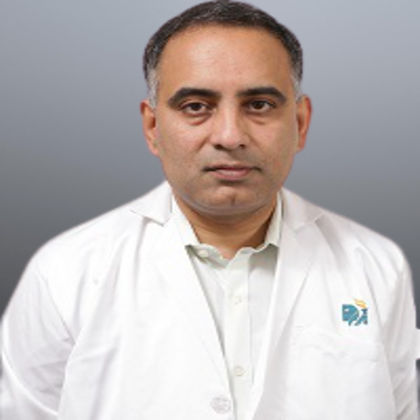
Dr. Raja T
Oncologist
20 Years • MBBS; MD; DM
Chennai
Apollo Hospitals Greams Road, Chennai
(200+ Patients)
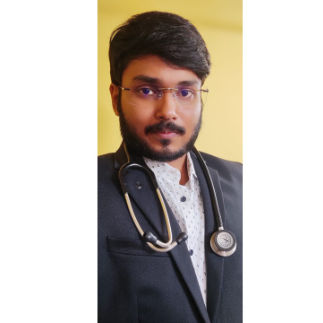
Dr. Rupam Manna
Radiation Specialist Oncologist
7 Years • MBBS MD(RADIO THERAPY), CCEBDM
Barasat
Diab-Eat-Ease, Barasat
Consult an Oncologist for Personalised Advice

Dr Gowshikk Rajkumar
Oncologist
10 Years • MBBS, DMRT, DNB in Radiation oncology
Bengaluru
Apollo Clinic, JP nagar, Bengaluru

Dr.sanchayan Mandal
Medical Oncologist
17 Years • MBBS, DrNB( MEDICAL ONCOLOGY), DNB (RADIOTHERAPY),ECMO. PDCR. ASCO
Kolkata
Dr. Sanchayan Mandal Oncology Clinic, Kolkata

Dr. Sanchayan Mandal
Medical Oncologist
17 Years • MBBS, DNB Raditherapy, DrNB Medical Oncology
East Midnapore
VIVEKANANDA SEBA SADAN, East Midnapore

Dr. Raja T
Oncologist
20 Years • MBBS; MD; DM
Chennai
Apollo Hospitals Greams Road, Chennai
(200+ Patients)

Dr. Rupam Manna
Radiation Specialist Oncologist
7 Years • MBBS MD(RADIO THERAPY), CCEBDM
Barasat
Diab-Eat-Ease, Barasat
